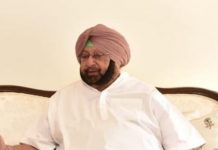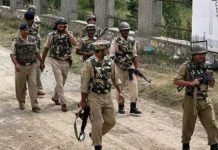
Make no mistake. The 11 May General Election has sharply divided Pakistan. The back-slapping commentariat has been congratulating fellow Pakistanis for democratically voting out a government. Before the end of the next week, Mian Mohammad Nawaz Sharif, whose Pakistan Muslim League-Nawaz (PML-N) has won the most seats in the National Assembly, will become prime minister. This election is being touted as a deepening of representative democracy in Pakistan because it is the first-ever “smooth” transition from one elected civilian government to another.
But in truth, as with many elections in Pakistan in the past, this time, too, there is widespread belief that the results have been manipulated. Of course, it may never be known if the charge is accurate or not. It must be stressed though that the world would be in error if it believed that Pakistanis see this election much differently from the past ones. They don’t. Perhaps they are angrier than in the past as for the first time the charge that an elector may have rigged the vote is the elephant in the room. In a rush to hail Pakistan’s arrival as a nation of elections, no one wants to talk of vote manipulation.
| If chance will have him king | Embracing the future, while stuck in the past | |
| An old war horse make s a bid to become Pakistan’s prime minster a third time since 1990. All he needs is to not be bowled by the cricketer | By Jason Burke | Sharif and Imran hardsell a naya Pakistan, but remain tight-lipped about the details | By Ayesha Siddiqa | |
 |
 |
|
| “My brothers,” calls the rotund, balding, middle-aged man on the stage. The words, distorted by a poor public address system, are barely audible. “My brothers,” crackles again across the stadium in Sargodha, a nondescript small city in central Punjab, Pakistan. The stadium is ringed with trees and birds flap overhead. In the distance there are the craggy hills of the salt range against a setting sun. “Today I feel a revolution has come to this town,” the man is saying. “I have a passion for change. Is it not change that has come? Am I not a revolutionary?” | There is a lot of visible excitement in the streets of most urban centres in Pakistan. The last time there was even greater public involvement was during the 1970 election when Zulfiqar Ali Bhutto promised change for the betterment of the downtrodden people against the 21 rich families of the country. The 11 May election is accompanied with a lot of passion and expectation of a naya (new) Pakistan, which is expected to be different from a corruption-ridden country led by the Pakistan People’s Party (PPP). | |
| Nawaz Sharif, in a white salwar kameez and a brown waistcoat, raises both arms. Earlier, an excited warm-up speaker had informed the crowd in hushed admiration that Sharif had asked for the glass plates protecting the rostrum from sniper fire to be removed. The 63-year-old tycoon glances down at his notes and calms noisy supporters at the front of the crowd with a downward movement of his palms. |
In the past five years, the term ‘Zardari’ has become synonymous with financial mismanagement on an enormous scale and poor governance. Notwithstanding deliberate and focussed propaganda against one party, the PPP and its leadership ought to share the blame for mismanaging the country. Moreover, its leadership was almost absent from the lives of ordinary people. |
|
| Read More> | Read More> |
~Also Read~
 Why is Frontier Gandhi’s party in the Taliban’s crosshair?
Why is Frontier Gandhi’s party in the Taliban’s crosshair?
As Pakistan goes to polls on 11 May, one political party in particular is being targeted by the Pakistani Taliban
 Wounded Pakistan trudges to vote
Wounded Pakistan trudges to vote
The PPP, MQM and ANP have banded together in the final stretch before the elections, and are venting their rage at the parties that do seem to have been largely spared the brunt of the militants’ attacks
 Will the army bite the bullet on Musharraf?
Will the army bite the bullet on Musharraf?
Allowing him to be punished will set an unwelcome precedent for the military
 Election rigging that borders on farce
Election rigging that borders on farce
The process of weeding out corrupt candidates is not as simple as it seems
 A party in search of a future leader
A party in search of a future leader
Why the young Bilawal Bhutto may fail to stop the PPP’s downward slide
 Pakistan: In the mood for hope
Pakistan: In the mood for hope
With the general election just seven weeks away, Pakistan is looking for its saviour, writes Emmanuel Derville
 For Zardari, five years of lost opportunities
For Zardari, five years of lost opportunities
The PPP regime huffs and puffs past the finish line, leaving behind a toxic legacy
Read More>
 Turn Of The Prince
Turn Of The Prince
On 16 March, the Pakistan People’s Party government will complete its five-year term – a first in the history of Pakistan’s electoral politics. As the party prepares for the next election, President Asif Ali Zardari is seen pushing for his son and the party’s 24 year-old chairman Bilawal Bhutto Zardari to take charge of the upcoming election campaign
Read More>
 Will be Army chief’s boss, says Nawaz Sharif
Will be Army chief’s boss, says Nawaz Sharif
Sharif hinted that the current army chief Gen Ashfaq Parvez Kayani would be replaced by the “senior most” when he retires in November
 Pak tribunals uphold rejection of Musharraf’s nomination
Pak tribunals uphold rejection of Musharraf’s nomination
Musharraf had filed appeals in the tribunals against the Returning Officers’ decisions but these were rejected by the judges
 Khoso sworn in as Pakistan’s caretaker Prime Minister
Khoso sworn in as Pakistan’s caretaker Prime Minister
The 84-year-old former judge was chosen by the Election Commission as the caretaker Prime Minister to conduct the general election scheduled for May 11
 Pak oppn rejects govt’s list for caretaker PM
Pak oppn rejects govt’s list for caretaker PM
The government had named former minister Abdul Hafeez Shaikh, banker Ishrat Hussain and retired judge Mir Hazar Khan Khoso as its candidates for caretaker premier













